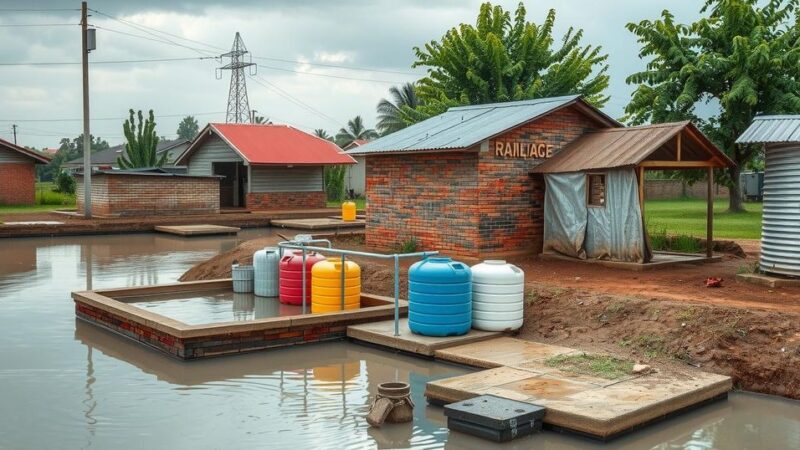The United Nations warned that 2024 is on track to become the hottest year on record due to climate change, with greenhouse gas emissions reaching unprecedented levels. The World Meteorological Organization reported severe weather events, including record rainfall and extreme heat, impacting communities worldwide. In light of these challenges, UN leaders are urging global action to dramatically reduce emissions and transition toward renewable energy by 2025.
In a stark warning about the escalating crises linked to climate change, the United Nations recently announced that 2024 is projected to be the hottest year on record. The organization emphasized the urgent need for global action to mitigate these effects, describing the situation as a perilous journey towards disaster. The World Meteorological Organization reported new highs in greenhouse gas emissions, which compounded the growing heat crisis into the foreseeable future.
The Secretary-General of the World Meteorological Organization, Celeste Saulo, remarked on the increasingly frequent and severe weather events influenced by climate change. This year, the world faced devastating instances of record rainfall and flooding, significantly harming communities globally. Tropical cyclones inflicted severe human and economic losses, particularly noted in Mayotte, a French overseas territory. Additionally, extreme heat affected numerous nations, with some regions reaching temperatures exceeding 50 degrees Celsius, as wildfires further intensified the devastation.
The ramifications of these trends echo the objectives laid out in the 2015 Paris Climate Agreement, which aims to restrict global warming to below two degrees Celsius relative to pre-industrial levels, and preferably to 1.5 degrees Celsius. The World Meteorological Organization’s statistics indicate a concerning rise, with the average temperature from January to September of this year sitting at 1.54 degrees Celsius above pre-industrial norms, reinforcing predictions that 2024 will surpass previous records.
In his New Year address, the Secretary-General of the United Nations, Antonio Guterres, reflected on the unprecedented temperature increases during the last decade, stating, “Today I can officially report that we have just endured a decade of deadly heat. The top 10 hottest years on record have happened in the last 10 years, including 2024,” characterizing this reality as a clear instance of climate breakdown. He implored national leaders to take immediate action, highlighting that in 2025, it is crucial to propose a stark reduction in emissions to redirect the world towards sustainable energy solutions, stressing that this transition is both essential and achievable.
The context of climate change and its far-reaching impact has become increasingly prominent in discussions worldwide. The UN and its affiliated organizations have been vocal in disseminating information regarding rising temperatures and the associated environmental crises. Data indicates a continuous increase in global temperatures and greenhouse gas emissions since the Industrial Revolution, contributing to a pattern of environmental instability characterized by extreme weather events. The urgency of addressing climate change has escalated, particularly following the commitments made in the Paris Climate Agreement, which serve as a framework for international cooperation toward mitigating climate impacts.
The alarming trends in climate change highlighted by the United Nations illustrate a critical moment in global environmental history. With 2024 poised to become the warmest year recorded, it is imperative that nations unite to address the increasing frequency of extreme weather phenomena. The call for substantial emissions reductions and a shift towards renewable energy sources has never been more crucial to ensuring a sustainable future for upcoming generations. Immediate action is necessary to alter the current trajectory and mitigate the far-reaching consequences of climate change.
Original Source: www.bangkokpost.com







